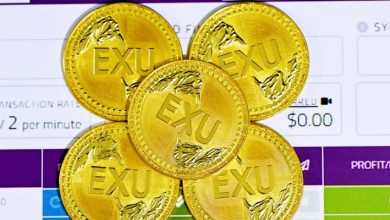The Pros and Cons of Decentralized Exchanges

- What are Decentralized Exchanges?
- Advantages of Decentralized Exchanges
- Disadvantages of Decentralized Exchanges
- Regulatory Challenges with Decentralized Exchanges
- Security Concerns with Decentralized Exchanges
- Future Outlook for Decentralized Exchanges
What are Decentralized Exchanges?
Decentralized exchanges, also known as DEXs, are platforms that allow users to trade cryptocurrencies directly with one another without the need for a central authority to oversee the transactions. Unlike centralized exchanges, which require users to deposit their funds on the exchange itself, DEXs allow users to retain control of their funds in their own wallets throughout the trading process.
One of the key advantages of decentralized exchanges is that they offer increased security and privacy compared to centralized exchanges. Because users do not need to trust a central authority with their funds, the risk of hacking or theft is significantly reduced. Additionally, DEXs typically do not require users to undergo a lengthy verification process, allowing for more anonymous trading.
Another benefit of decentralized exchanges is that they are often more resistant to censorship and government regulation. Since there is no central server or authority controlling the exchange, it is much more difficult for governments or other entities to shut down or restrict access to a DEX. This can be particularly valuable for users in countries with strict financial regulations or capital controls.
However, decentralized exchanges also have some drawbacks. One of the main challenges facing DEXs is liquidity – because trades are executed directly between users, there may be fewer buyers and sellers for a particular asset compared to a centralized exchange. This can lead to wider spreads and lower trading volumes, making it more difficult to execute trades quickly and at favorable prices.
Despite these challenges, decentralized exchanges continue to grow in popularity as more users seek to take advantage of the increased security and privacy they offer. By allowing users to trade directly with one another in a peer-to-peer manner, DEXs are helping to create a more decentralized and democratized financial system for the future.
Advantages of Decentralized Exchanges
Decentralized exchanges offer several advantages over traditional centralized exchanges, making them an attractive option for many cryptocurrency traders and investors. Some of the key benefits of decentralized exchanges include:
- Security: One of the main advantages of decentralized exchanges is the enhanced security they provide. By eliminating the need for a central authority to hold users’ funds, decentralized exchanges reduce the risk of hacking and theft.
- Privacy: Decentralized exchanges also offer a higher level of privacy compared to centralized exchanges. Users can trade directly from their wallets without the need to create an account or provide personal information.
- Control: With decentralized exchanges, users have full control over their funds at all times. There is no risk of funds being frozen or seized by a central authority, giving users greater autonomy over their assets.
- Global Access: Decentralized exchanges are accessible to anyone with an internet connection, regardless of their location. This global access allows for greater liquidity and trading opportunities.
- Lower Fees: Decentralized exchanges typically have lower fees compared to centralized exchanges. This can result in cost savings for frequent traders and investors.
Overall, decentralized exchanges offer a more secure, private, and user-controlled trading experience, making them a popular choice for many in the cryptocurrency community.
Disadvantages of Decentralized Exchanges
One of the drawbacks of decentralized exchanges is the lack of liquidity compared to centralized exchanges. This can result in slower trading speeds and higher price volatility, making it more challenging for traders to execute their desired trades efficiently. Additionally, decentralized exchanges often have limited trading pairs available, which can further restrict the options available to traders.
Another disadvantage of decentralized exchanges is the potential for security vulnerabilities. While decentralized exchanges are designed to be more secure than centralized exchanges due to their lack of a single point of failure, they are still susceptible to hacking and other security breaches. This can put traders’ funds at risk and erode confidence in the platform.
Furthermore, decentralized exchanges can be more challenging for novice traders to navigate compared to centralized exchanges, which often have more user-friendly interfaces and customer support options. This can make it difficult for newcomers to the cryptocurrency space to get started with trading on decentralized exchanges.
In addition, decentralized exchanges may face regulatory challenges in certain jurisdictions, as they operate outside of traditional financial systems and may not comply with local regulations. This can make it more difficult for traders to access decentralized exchanges or limit the functionality available to them.
Overall, while decentralized exchanges offer advantages such as increased privacy and control over funds, they also come with drawbacks that traders should consider before using these platforms for their cryptocurrency trading needs.
Regulatory Challenges with Decentralized Exchanges
One of the main challenges facing decentralized exchanges is the regulatory uncertainty surrounding them. Traditional exchanges are subject to strict regulations imposed by governmental authorities to prevent fraud, money laundering, and other illicit activities. However, decentralized exchanges operate in a more autonomous and decentralized manner, making it difficult for regulators to enforce compliance.
Regulators are concerned about the lack of oversight and control over decentralized exchanges, which could potentially be used for illegal activities without proper monitoring. This has led to increased scrutiny and calls for more stringent regulations to be imposed on these platforms to ensure they operate within the law.
Some argue that imposing strict regulations on decentralized exchanges goes against the core principles of decentralization and undermines the benefits they offer, such as increased privacy, security, and censorship resistance. Finding the right balance between regulatory compliance and preserving the decentralized nature of these exchanges remains a significant challenge for policymakers.
Despite these challenges, some decentralized exchanges are taking steps to address regulatory concerns by implementing know-your-customer (KYC) and anti-money laundering (AML) procedures to enhance transparency and accountability. By proactively addressing these issues, decentralized exchanges can potentially mitigate regulatory risks and build trust with users and regulators alike.
Security Concerns with Decentralized Exchanges
Decentralized exchanges offer many advantages, such as increased privacy and control over assets. However, one major concern with decentralized exchanges is security. While centralized exchanges have a central authority to oversee transactions and protect users, decentralized exchanges operate without a trusted intermediary. This lack of oversight can make decentralized exchanges vulnerable to hacks, scams, and other security breaches.
Users of decentralized exchanges are responsible for managing their private keys and securing their accounts. If a user’s private key is compromised, hackers can gain access to their funds and execute unauthorized transactions. Additionally, decentralized exchanges may not have the same level of security protocols in place as their centralized counterparts, making them more susceptible to attacks.
Another security concern with decentralized exchanges is the lack of regulatory oversight. Without a central authority to enforce regulations and protect users, decentralized exchanges may become breeding grounds for fraudulent activities. Users may fall victim to Ponzi schemes, phishing scams, and other forms of fraud without any recourse for recovering their funds.
In conclusion, while decentralized exchanges offer benefits in terms of privacy and control, users must be aware of the security risks involved. It is essential to take precautions to protect private keys, use secure wallets, and conduct thorough research before using a decentralized exchange. By staying vigilant and informed, users can mitigate the security concerns associated with decentralized exchanges and enjoy the benefits of a decentralized trading environment.
Future Outlook for Decentralized Exchanges
Looking ahead, the future outlook for decentralized exchanges appears promising. As the cryptocurrency market continues to evolve, the demand for decentralized platforms is expected to grow. These exchanges offer users greater control over their funds and transactions, as well as increased privacy and security. Additionally, decentralized exchanges can facilitate peer-to-peer trading without the need for intermediaries, reducing the risk of hacks and theft. This decentralized model aligns with the original vision of cryptocurrencies as a means of financial freedom and empowerment.



